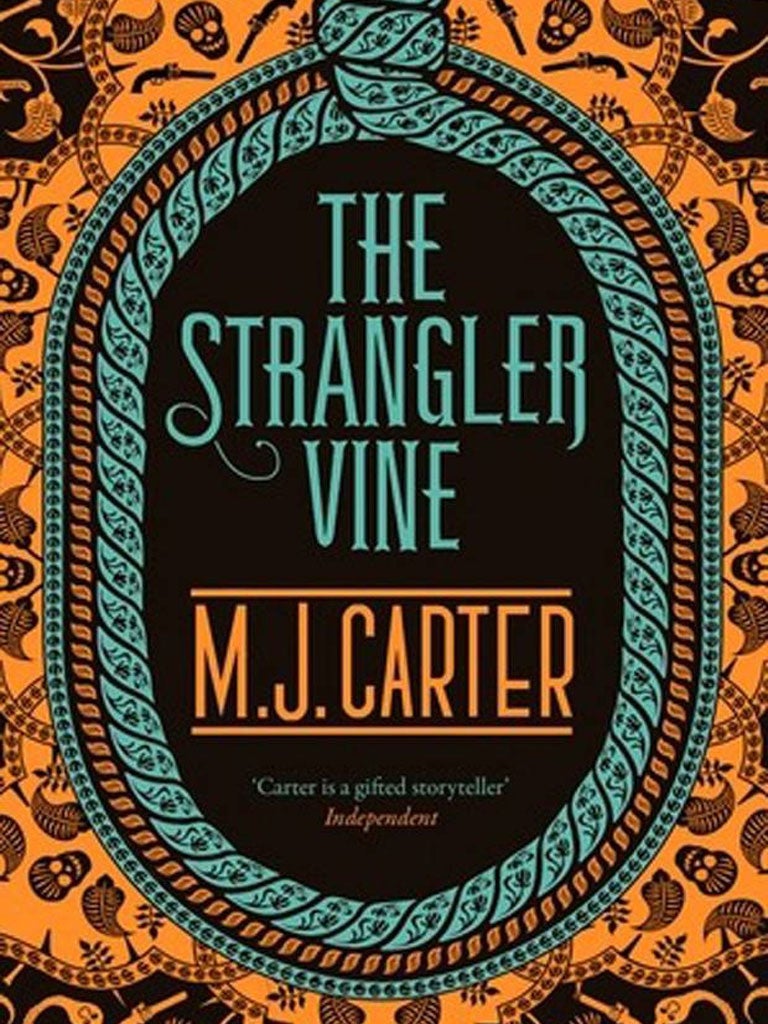Book review: The Strangler Vine by MJ Carter
A rip-roaring ride through a violence-riven Raj

The publishers have done this book a disservice in calling it a “rip-roaring caper”. True, it has lots of fast-moving drama, but it also has a carefully researched setting in early Victorian India, where the East India Company, backed up by the British Army, controls much of the sub-continent.
There are some characters we might recognise from genre fiction – the young lieutenant, the disdainful beauty, the mysterious Indian, but they are woven into a plot which lays bare some very unattractive features of the Raj, an era which has been horribly romanticised in popular literature. At this point, an earlier respect for Indian culture is in decline and being replaced by a greedier, brutal imperialism which despises the “natives”.
William Avery is, however, an attractive character, a naive lieutenant sent out of Calcutta by the Company to find Xavier Mountstuart, India expert and novelist, who has disappeared into the depths of the jungle. In this mysterious environment grow the “strangler vines” of the title, creepers which choke the trees until killer and victim are so entangled they are indistinguishable.
Avery is accompanied by Jeremiah Blake, Special Inquiry Agent and eccentric scholar. With two Indian aides, they set out from Calcutta to Dura, said to be the home of the notorious Thuggee sect who waylay travellers and strangle them silently. On the way they meet a British hero, Major Sleeman, famous to history as the suppressor of Thuggism, and discover the brutality at the heart of his “system” for converting suspected Thugs into upright citizens. Here, Carter reflects recent academic debate on Thuggism: did it originate as a religious cult, or was it invented by the British as an “Orientalist bogeyman” legend? Carter follows Mike Dash’s work, which found that it actually was a murderous force and describes mass graves of the victims. In any case, her fictional account is scary enough.
Also taken from historical fact is the figure of Xavier Mountstuart, evidently based on Philip Meadows Taylor, whose novel Confessions of a Thug had huge success in the 1840s. Carter gives us delicious descriptions of the wonderful court of a Rao, or Rajah: the hunting cheetahs, elephants wound about with golden chains. There are horrors too: the famine surrounding this dazzling wealth, the criminals executed by elephant-trampling. But ever onwards through the jungle presses the gallant young Avery, encountering treachery and violence, finally triumphing after many perils as a hero should. It’s a great read, white tigers and all.
Order for £11.99 (free p&p) from the Independent Bookshop: 08430 600 030
Join our commenting forum
Join thought-provoking conversations, follow other Independent readers and see their replies
Comments